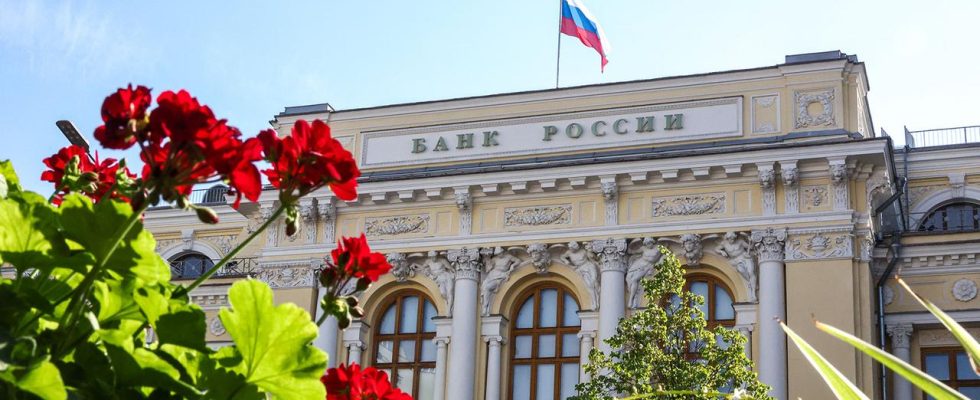In order to get rising prices under control and stabilize the ruble, the Russian central bank has increased interest rates again. President Putin recently warned of uncontrolled inflation.
In view of the weakness of the ruble and the ongoing risk of inflation, the Russian central bank is tightening the reins further. The monetary authorities increased the key monetary policy rate by a full point to 13.0 percent.
The Russian central bank had already decided to raise interest rates sharply at a crisis meeting last month. It now signaled that the end of the flagpole has probably not yet been reached. The central bankers announced that the need for further monetary policy tightening will be discussed at the next meetings.
Putin warns of the consequences of inflation
Inflation in the country, which was subject to Western sanctions because of the attack on Ukraine, rose sharply in August – from 4.3 percent in July to 5.2 percent. The central bank is actually aiming for a value of 4.0 percent. However, it assumes that this goal will not be achieved until 2024.
Russian President Vladimir Putin recently warned of the consequences of out-of-control inflation for the domestic economy. “In conditions of high inflation, it is practically impossible to draw up business plans,” he said on Tuesday at the Eastern Economic Forum in Vladivostok.
The central bank acted in a timely manner last month. However, high interest rates could simultaneously inhibit lending and economic growth.
In addition to fighting inflation, the Russian central bank also wants to curb the fall in the ruble’s value, which makes imports more expensive, which in turn can fuel inflation. The ruble is currently at its highest level against the dollar in almost six weeks.
Interest rates were increased “in order to minimize the risks to price stability,” the central bank explained at the crisis meeting in August.
No further steps to stabilize the ruble exchange rate
Putin said that the ruble exchange rate was influenced, among other things, by the “restrained” repatriation of foreign exchange earnings by exporters. But no sudden steps would be taken to counter this. Putin continued that he sees no problems with the volatility of the ruble. The relevant authorities had a number of tools at their disposal to keep the currency and markets under control.
With a flexible interest rate response, the Moscow monetary authorities have made a significant contribution to cushioning the economic effects of the Ukraine war and Western sanctions against Russia. A few days after Russian troops invaded the neighboring country, they initially increased the key interest rate from 9.5 percent to 20 percent at the end of February 2022, under the impression of the fall in the ruble’s exchange rate at the time.
According to economists, the Russian economy is being artificially fueled by military buildup, but is falling behind in future technologies due to Western sanctions following the war against Ukraine. A delicate situation for President Putin, especially since elections are due in March 2024. Because consumers are also groaning under rising prices for basic foods.

